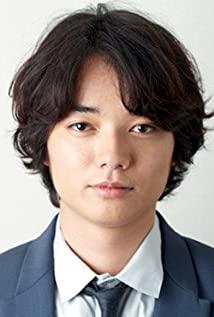They say ordinary is precious, but ordinary is the hardest.
This was originally a story of despair. Although the last glimmer of hope in the movie still exists, the misfortune that has been caused is irreversible, and the imprint of the character cannot be changed.
The misfortune of personal destiny is more inclined to the theory of original sin, and the families of male and female protagonists without any reason are equally distorted and perverted, which is confusing. If the misfortune of these two people comes from the original family, the misfortune of others comes from the society, and everyone's lack of belonging and panic has become the foreshadowing of all motives.
The film adapts the background of the comics and resets it to the background after the earthquake, which makes some rational arrangements from the one-man show to the presentation of social group images to some extent. This adaptation is undoubtedly aimed at making the layout bigger, but this background has no direct and powerful influence on the fate of the characters, and it bears the factor of an implanted narration to a greater extent, which is slightly insufficient.
Sumita has always emphasized that he just wants to go home and inherit the boat rental shop. This is a yearning for ordinary happiness. As soon as my father appeared, we understood the cause of this yearning and the rapid breakdown of this idea. The father is the same curse as before, and the mother's running away from home is just the first step. The debt collection of the loan shark company and the father's visit again pushed the development of the matter in an irreversible direction. We are all guessing the development of the plot after the murder of the father. At this time, we chose to arrange him to be free in the society. So far, the personal perspective has been cast to the society, and it has become a mirror of the society.
Focusing on a few events selected, the protagonists in several events are without exception panic and confusion and emptiness under unknown reasons, as well as hysterical counterattacks. It gives me the feeling that the whole society is as full of misfortune and the blow of fate as Sumida, or the result he chooses to present to show the theme of the decadent generation.
Sumita played the role of hoeing the strong and helping the weak in these incidents, and what was the driving force behind this behavior? After contacting the recording, he was living a life after the death of his father, and finally wanted to find some proof of his life. We all know that his original idea was just to live an ordinary life, but after this possibility is completely broken, it can only be found and realized outwards. The murder of the guests who came to charter the boat before gave him inspiration. Maybe he thought this was the last way out for his soul. This kind of self-destruction of self-redemption is the performance after the end of the road. The heroine's explanation is that Sumita also wants to be an excellent adult who contributes to society at this time. If this is the case, then the hero can be regarded as achieving self-awakening and growth in another sense.
But in the end, it didn't end with him being imprisoned for hurting people in society, and the person who broke this endless cycle can be said to be the heroine in a narrow sense, but in fact the group of adults around him are also a bunch of his life. Light. This is redemption from others beyond self-rescue. This redemption is manifested not only in company and silent assistance, but also in the collective act of ignorance after learning that he killed his father. The only difference is the heroine. Reporting Sumita is the ultimate way out for her. Sumita accepted it. I can't say whether I accept this setting or not. The foreshadowing that was buried at the beginning began to play a role. The gunshots that sounded in the middle of the night triggered the last suspense. When the male protagonist reappeared, we knew the director's positioning of the film.
We think that youth films are all the sorrows and troubles of growing up, and this film develops directly towards crime and darkness. The downside is that there is no real relationship with society. This is still an analysis of an extreme case.
In the poem I read at the beginning, the cool tones and the manic sound of hunting and hunting wind shaped the atmosphere. From the very beginning, such a tone was laid, which is not so much the insight and relief of fate, but the passive acceptance of the scourge of fate. I always feel that the male protagonist puts his personality out too often. It would be better if he could live in more and rationalize the fate of the characters.
View more about Themis reviews











